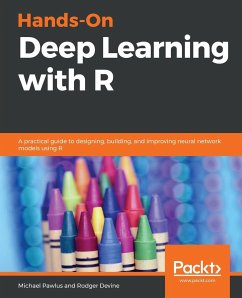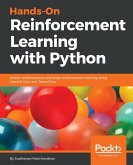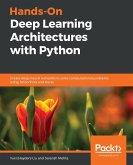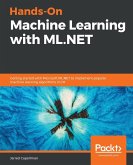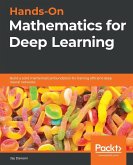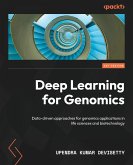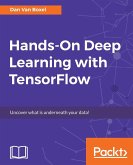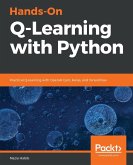Explore and implement deep learning to solve various real-world problems using modern R libraries such as TensorFlow, MXNet, H2O, and Deepnet Key Features Understand deep learning algorithms and architectures using R and determine which algorithm is best suited for a specific problem Improve models using parameter tuning, feature engineering, and ensembling Apply advanced neural network models such as deep autoencoders and generative adversarial networks (GANs) across different domains Book Description Deep learning enables efficient and accurate learning from a massive amount of data. This book will help you overcome a number of challenges using various deep learning algorithms and architectures with R programming. This book starts with a brief overview of machine learning and deep learning and how to build your first neural network. You'll understand the architecture of various deep learning algorithms and their applicable fields, learn how to build deep learning models, optimize hyperparameters, and evaluate model performance. Various deep learning applications in image processing, natural language processing (NLP), recommendation systems, and predictive analytics will also be covered. Later chapters will show you how to tackle recognition problems such as image recognition and signal detection, programmatically summarize documents, conduct topic modeling, and forecast stock market prices. Toward the end of the book, you will learn the common applications of GANs and how to build a face generation model using them. Finally, you'll get to grips with using reinforcement learning and deep reinforcement learning to solve various real-world problems. By the end of this deep learning book, you will be able to build and deploy your own deep learning applications using appropriate frameworks and algorithms. What you will learn Design a feedforward neural network to see how the activation function computes an output Create an image recognition model using convolutional neural networks (CNNs) Prepare data, decide hidden layers and neurons and train your model with the backpropagation algorithm Apply text cleaning techniques to remove uninformative text using NLP Build, train, and evaluate a GAN model for face generation Understand the concept and implementation of reinforcement learning in R Who this book is for This book is for data scientists, machine learning engineers, and deep learning developers who are familiar with machine learning and are looking to enhance their knowledge of deep learning using practical examples. Anyone interested in increasing the efficiency of their machine learning applications and exploring various options in R will also find this book useful. Basic knowledge of machine learning techniques and working knowledge of the R programming language is expected.
Hinweis: Dieser Artikel kann nur an eine deutsche Lieferadresse ausgeliefert werden.
Hinweis: Dieser Artikel kann nur an eine deutsche Lieferadresse ausgeliefert werden.

